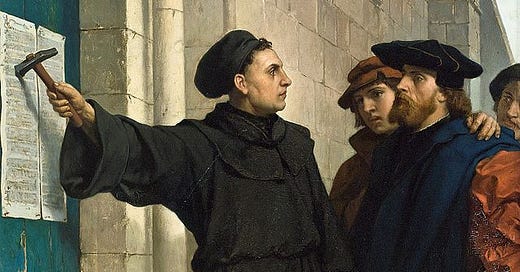No one can lay any other foundation than the one that has been laid, which is Jesus Christ.
This is what it says in the Apostle Paul's first letter to the Corinthians.1 This sentence sums up the essence of the Reformation. There is probably no more fitting one. What the reformers were concerned about 500 years ago was Jesus Christ. In the following, I wou…




